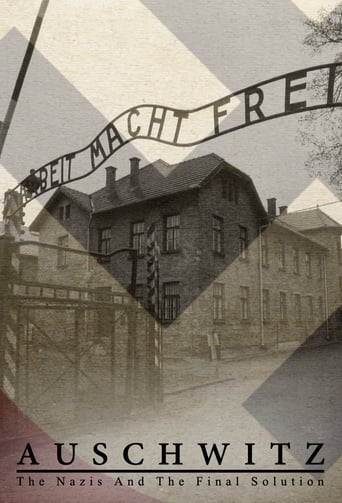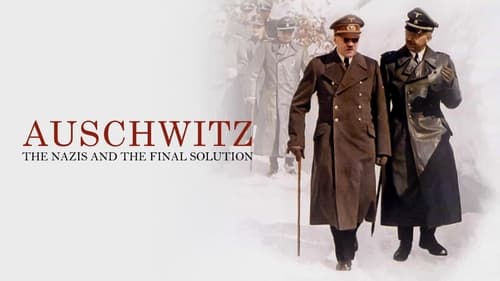Thaneevuth Jankrajang
People involved with the production of this documentary understand and achieve the maturity in which not many people attain. It is that the facts of the Holocaust need no over-dramatisation at all. A simplistic and even storytelling, plus fairness and calmness, is just right, if one wants real impact for the audience. This piece of excellent journalism establishes the evolutionary nature of a thinking mind: it grows on you. Watching this documentary is comparable to hearing a politely confident voice taking us down the road we do not plan to complete the journey. Just like death camps themselves, or the mind of the Jewish and other victims at the time, people in the field did not know what they were up against. Unfortunate circumstances, at first, had led to bad, worse, and finally hopeless situation for those violated and abused at the extreme. Some people lost their sense of optimism and logical thinking. Some people firmly believed that "God" had completely forgotten this Hell on earth, or simply found it too much of a Hell to visit. I think that the producers and directors of this documentary had wanted to walk us step by step, without attempting to let us presume anything. Personal judgment at the end, therefore, is genuine. I believe it is by way of honouring this dark saga of human tragedy most properly. it is too large an issue to be pre-cooked. It must be knowledgeably and decently presented to the audience, and let that audience figure out themselves. This documentary feature has accomplished that task. People who watch would have the memories with them for life. I grew up all my life in Asia. Far away from Hell of Auschwitz and other death camps a million miles apart. Yet, I feel the feeling. I feel the historical task to do whatever I can about it. Yes, I share.
araujo-vivian
The documentary impressed me, it has a different approach from others that I have watched. It described a detailed physical and a social situations of the camp. In the end of each chapter, you can understand a little more deeply what it had represented for the Jewish people, the foreigners, the families, the Nazis, all the horror and the distorted ideas that make all these things happened. For the people who experienced it and all the political involved, all the consequences for all nations involved and the thoughts of "Nazi", in the final I was sad and I think the history have a power to educate ourselves to be a better person, not repeat the atrocities, the ideal to exterminated a race is outrageous, we are not God and we can't decide the their destiny.
Charles Reinderhoff
This series of films is a masterpiece. It's as simple at that. How one has been able to make an in depth and gruesomely precise dramatized film on such a black hole in human history is beyond me. But they have succeeded. The film is very precise, very direct, and, very honest. It tells the story of human beings at their worst. Sometimes one may want to stop the film, knowing what is going to come next, but something forces you to go on. It's like a powerful magnet, you can not stop watching. What makes this film worth while, is the way it has been built up for the viewer. It explains in clear precise words and pictures what had to be done in the Nazi state if you belonged to the chain of command in the SS organization. Most people don't realize it today, but many SS higher commanders where academically schooled in private life. Some where lawyers or doctors, others where economists or engineers. These men were intellectuals. The shocking trues is, that the SS was an intellectual elite bent into a warped idea of supremacy with no holds barred. This film makes you look at these cold hard facts. How in peacetime respectable men, became in wartime beasts and cold blooded murders. This film tells us something about...ourselves.
j_e_bryant
Not for the feint of heart . . . it's such a sad chapter in human history. But this 6 disc series definitely is thorough and comprehensive. Highly recommended for those who want to know all the ins and outs of Auschwitz. From its inception to its ultimate destruction . . . and how the Nazis created efficient murder factories. Not only does it interview survivors, but also some of the SS guards. There are first hand accounts of seemingly every aspect of this concentration camp. Well made and worth watching . . .There's a little recap at the end of each Disc where a moderator discusses some issues with various academic types -- and it didn't really add too much to the series as a whole. Seems like a good educational tool for high school students, etc.




